| Vinayak Damodar Savarkar | |
|---|---|
 Savarkar seated on a chair | |
| Born |
28 May 1883 Bhagur, Nasik, Bombay Presidency, British India (now in Maharashtra, India) |
| Died |
26 February 1966 (aged 82) Bombay, Maharashtra, India |
| Cause of death | Fast unto death |
| Nationality | Indian |
| Alma mater |
University of Mumbai Gray's Inn |
| Known for | Hindutva, Hindu nationalism |
| Political party | Hindu Mahasabha |
| Spouse(s) | Yamunabai (m. 1902; d. 1963) |
| Children | 3 |
| Relatives | Ganesh Damodar Savarkar (brother) |
Vinayak Damodar Savarkar (![]() pronunciation (help·info)) (28 May 1883 – 26 February 1966) was an Indian, Hindutva activist, lawyer, politician, poet, writer and playwright. Savarkar coined the term Hindutva (Hinduness) to create a collective "Hindu" identity as an essence of Bharat (India). His political philosophy had the elements of utilitarianism, rationalism and positivism, humanism and universalism, and realism. Savarkar was also an atheist who disapproved of orthodox beliefs in all religions.
pronunciation (help·info)) (28 May 1883 – 26 February 1966) was an Indian, Hindutva activist, lawyer, politician, poet, writer and playwright. Savarkar coined the term Hindutva (Hinduness) to create a collective "Hindu" identity as an essence of Bharat (India). His political philosophy had the elements of utilitarianism, rationalism and positivism, humanism and universalism, and realism. Savarkar was also an atheist who disapproved of orthodox beliefs in all religions.
Savarkar's revolutionary activities began while studying in India and England, where he was associated with the India House and founded student societies including Abhinav Bharat Society and the Free India Society, as well as publications espousing the cause of complete Indian independence by revolutionary means. Savarkar published The Indian War of Independence about the Indian rebellion of 1857 that was banned by British authorities. He was arrested in 1910 for his connections with the revolutionary group India House. Following a failed attempt to escape while being transported from Marseilles, Savarkar was sentenced to two life terms of imprisonment totaling fifty years and was moved to the Cellular Jail in the Andaman and Nicobar Islands, but released in 1921.
While in jail, Savarkar wrote the work describing Hindutva, espousing what it means to be a Hindu, and Hindu pride, in which he defined as all the people descended of Hindu culture as being part of Hindutva, including Buddhists, Jains and Sikhs. In 1921, under restrictions after signing a plea for clemency, he was released on the condition that he renounce revolutionary activities. Traveling widely, Savarkar became a forceful orator and writer, advocating Hindu political and social unity. Serving as the president of the Hindu Mahasabha, Savarkar endorsed the ideal of India as a Hindu Rashtra and opposed the Quit India struggle in 1942, calling it a "Quit India but keep your army" movement. He became a fierce critic of the Indian National Congress and its acceptance of India's partition. He was accused of the assassination of Mahatma Gandhi but acquitted by the court.
The airport at Port Blair, Andaman and Nicobar's capital, has been named Veer Savarkar International Airport. The commemorative blue plaque on India House fixed by the Historic Building and Monuments Commission for England reads "Vinayak Damodar Savarkar 1883-1966 Indian patriot and philosopher lived here". In the recent past, the Shiv Sena party has demanded that the Indian Government posthumously confer upon him India's highest civilian award, the Bharat Ratna.
Contents
Early life
This section needs additional citations for verification. (October 2013) (Learn how and when to remove this template message) |
Vinayak Damodar Savarkar was born in the Marathi Chitpavan Brahmin Hindu family of Damodar and Radhabai Savarkar in the village of Bhagur, near the city of Nashik, Maharashtra. He had three other siblings namely Ganesh, Narayan, and a sister named Maina. He earned the nickname "Veer" (Sanskrit:braveheart)when at the age of 12, he led fellow students against a rampaging horde of Muslims that attacked his village. Highly outnumbered, he inspired the boys to fight-on until the last Muslim was driven off. Later, he is known to have stated: "Do not fear them. The Almighty is your strength, so fight, even when facing an enemy stronger than yourself"
After the death of his parents, the eldest sibling Ganesh, known as Babarao, took responsibility of the family. Babarao played a supportive and influential role in Vinayak's teenage life. During this period, Vinayak organised a youth group called Mitra Mela (Band of Friends) and encouraged revolutionary and nationalist views of passion using this group. In 1901, Vinayak Savarkar married Yamunabai, daughter of Ramchandra Triambak Chiplunkar, who supported his university education. Subsequently, in 1902, he enrolled in Fergusson College, in Pune . As a young man, he was inspired by the new generation of radical political leaders namely Bal Gangadhar Tilak, Bipin Chandra Pal and Lala Lajpat Rai along with the political struggle against the partition of Bengal and the rising Swadeshi campaign. After completing his degree, nationalist activist Shyamji Krishna Varma helped Vinayak to go to England to study law, on a scholarship. It was during this period that the Garam Dal, literally "Army of the angry," was formed under the leadership of Tilak as a result of a split between the moderate, "constitutionalist" wing on the one part, and of Tilak's extremist or radical wing in the Indian National Congress. The members of the Garam Dal, did not acknowledge the agenda of the majority moderate Indian National Congress leadership which advocated dialogue with the British rulers and incremental steps towards Independence by gaining confidence of the British. Tilak was soon imprisoned for his support of revolutionary activities.
Activities at India House
This section needs additional citations for verification. (October 2013) (Learn how and when to remove this template message) |
After joining Gray's Inn law college in London Vinayak took accommodation at India House. Organized by expatriate social and political activist Pandit Shyamji, India House was a thriving centre for student political activities. Savarkar soon founded the Free India Society to help organize fellow Indian students with the goal of fighting for complete independence through a revolution, declaring,
We must stop complaining about this British officer or that officer, this law or that law. There would be no end to that. Our movement must not be limited to being against any particular law, but it must be for acquiring the authority to make laws itself. In other words, we want absolute independence.
Savarkar envisioned a guerrilla war for independence along the lines of the famous war for Indian independence of 1857. Studying the history of the revolt, from English as well as Indian sources, Savarkar wrote the book, The History of the War of Indian Independence. He analysed the circumstances of 1857 uprising and assailed British rule in India as unjust and oppressive. It was via this book that Savarkar became one of the first writers to allude the uprising as India's "First War for Independence."
The book was banned throughout the British Empire. Madame Bhikaji Cama, an expatriate Indian revolutionary obtained its publication in the Netherlands, France and Germany. Widely smuggled and circulated, the book attained great popularity and influenced rising young Indians. Savarkar was studying revolutionary methods and he came into contact with a veteran of the Russian Revolution of 1905 who imparted him the knowledge of bomb-making. Savarkar had printed and circulated a manual amongst his friends on bomb-making and other methods of guerrilla warfare.
In 1909, Madan Lal Dhingra, a keen follower and friend of Savarkar, assassinated Sir William Hutt Curzon Wyllie in a public meeting. Dhingra's action provoked controversy across Britain and India, evoking enthusiastic admiration as well as condemnation. Savarkar published an article in which he all but endorsed the murder and worked to organize support, both political and for Dhingra's legal defence.
At a meeting of Indians called for a condemnation of Dhingra's deed, Savarkar protested the intention to condemn and was drawn into a hot debate and angry scuffle with other participants. A secretive and restricted trial and a sentence awarding the death penalty to Dhingra provoked an outcry and protest across the Indian student and political community. Strongly protesting the verdict, Savarkar struggled with British authorities in laying claim to Dhingra's remains following his execution. Savarkar hailed Dhingra as a hero and martyr, and began encouraging revolution with greater intensity.
Arrest in London and Marseille
This section needs additional citations for verification. (October 2013) (Learn how and when to remove this template message) |
In India, Ganesh Savarkar had organised an armed revolt against the Morley-Minto reforms of 1909. The British police implicated Savarkar in the investigation for allegedly plotting the crime. Hoping to evade arrest, Savarkar moved to Madame Cama's home in Paris. He was nevertheless arrested by police on 13 March 1910. In the final days of freedom, Savarkar wrote letters to a close friend planning his escape. Knowing that he would most likely be shipped to India, Savarkar asked his friend to keep track of which ship and route he would be taken through. When the ship SS Morea reached the port of Marseille on 8 July 1910, Savarkar escaped from his cell in the hope that his friend would be there to receive him in a car. But his friend was late in arriving, and the alarm having been raised, Savarkar was re-arrested.
Case before the Permanent Court of Arbitration
| Savarkar | |
|---|---|
| Court | Permanent Court of Arbitration |
| Full case name | Arrest and Return of Savarkar (France v. Great Britain) |
| Decided | 24 February 1911 |
| Court membership | |
| Judges sitting |
M. Beernaert, president, elected by panel Louis Renault Earl of Desart G. Gram Alexander de Savornin Lohman |
| Case opinions | |
| Decision by | Unanimous panel |
Savarkar's arrest at Marseilles caused the French government to protest to the British, arguing that the British could not recover Savarkar unless they took appropriate legal proceedings for his rendition. The dispute came before the Permanent Court of International Arbitration in 1910, and it gave its decision in 1911. The case excited much controversy as was reported by the New York Times, and it considered it involved an interesting international question of the right of asylum.
The Court held, firstly, that since there was a pattern of collaboration between the two countries regarding the possibility of Savarkar's escape in Marseilles and there was neither force nor fraud in inducing the French authorities to return Savarkar to them, the British authorities did not have to hand him back to the French in order for the latter to hold rendition proceedings. On the other hand, the tribunal also observed that there had been an "irregularity" in Savarkar's arrest and delivery over to the Indian Army Military Police guard.
Request Movie Now
Watch movie Veer Savarkar online on Amazon
Watch movie Veer Savarkar online
Watch The Movie On PrimeZulmi Full HD Movie Download
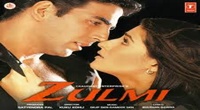
Dil (1990) Full HD Movie Download
.jpg)
Buddhivantha Full HD Movie Download
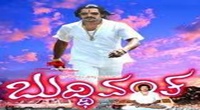
Aag Ka Dariya Full HD Movie Download
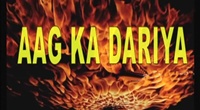
Ganga Aur Suraj Full HD Movie Download
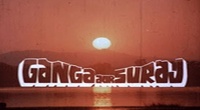
Aandhi (1975) Full HD Movie Download
.jpg)
Ahista Ahista (2006) Full HD Movie Download
.jpg)
Balwaan (2009) Full HD Movie Download
.jpg)
Manal Kaiyru Full HD Movie Download
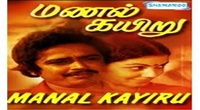
404 Full HD Movie Download

Shaitan Mantrik Full HD Movie Download
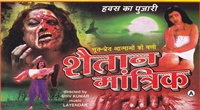
Raajadaani Full HD Movie Download
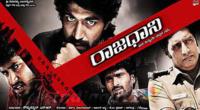
Family Full HD Movie Download

Manathil Uruthi Vendum Full HD Movie Download
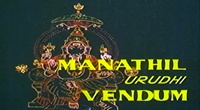
Aakhari Khat Full HD Movie Download
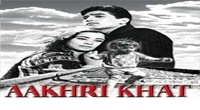
International Don Full HD Movie Download
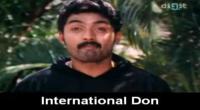
Shakti-The Devine Force Full HD Movie Download

Ayiram Poi Full HD Movie Download
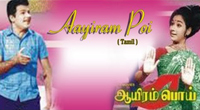
Bharatamlo Arjunudu Full HD Movie Download
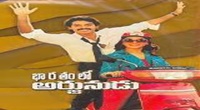
Dil Full HD Movie Download
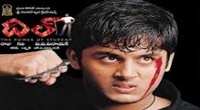
Sangamam Full HD Movie Download
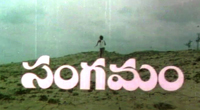
Download latest Movie from bollywood
- 1> baaghi 3
- 2> THE SKY IS PINK MOVIE FULL STORY AND REVIEW
- 3> Luka Chuppi
- 4> TO ALL THE BOYS I’VE LOVED BEFORE
- 5> Kabir Singh
- 6> Street Dancer 3D
- 7> Simmba
- 8> Gone Girl
- 9> The Girl Who Lived
- 10> Ludo
- 11> DILWALE DULHANIA LE JAYENGE
- 12> GUILTY
- 13> The Godfather
- 14> Adventures of Rusty
- 15> Sooryavanshi
- 16> Satyameva Jayate 2
- 17> Thappad
- 18> Bhool Bhulaiyaa 2
- 19> KGFChapter 2
- 20> Mardaani 2
- 21> Pinjar
- 22> Shivaji maharaj
- 23> Ek Villian 2
- 24> Hungama 2
- 25> Divergent
- 26> Mumbai Saga
- 27> The Internship
- 28> HIT (telugu)
- 29> Panga
- 30> The perfect date
- 31> 16 December
- 32> Gopala Gopala (Telugu)
- 33> Brahmastra
- 34> Gangubai Kathiawadi
- 35> Manmadhudu
- 36> Nenu local
- 37> Mahanati
- 38> Shatamanam bavathi
- 39> Lagaan
- 40> After
- 41> MOM
- 42> Shamshera
- 43> Raguvaran BTech
- 44> Khakee
- 45> The villain
- 46> OM
- 47> Mr. perfect
- 48> Bueatifull mind
- 49> Hichki
- 50> Gabbar Singh
- 51> Jogi
- 52> Before Sunrise
- 53> Before Sunset
- 54> Before Midnight
- 55> The Big Bull
- 56> Top Gun: Maverick
- 57> The Purge
- 58> The Sky is Pink
- 59> Laxmmi Bomb
- 60> Sadak 2
- 61> Sufna
- 62> Prithviraj
- 63> PK
- 64> Coolie No 1(2020)
- 65> Black Widow
- 66> Dear Zindagi
- 67> Dil Bechara
- 68> PHIR HERA PHERI
- 69> WAR
- 70> Dostana
- 71> RRR: Roudram Ranam Rudhiram
- 72> Maidan
- 73> Dabbang 3
- 74> Chhalaang
- 75> life as we know it
- 76> SherShaah
- 77> Sandeep Aur Pinky Faraar
- 78> Event Horizon
- 79> 83
- 80> Radhe: Your Most Wanted Bhai
- 81> Gunjan Saxena: The Kargil Girl
- 82> Mr India
- 83> Vivah
- 84> Anokha Bandhan
- 85> Ghost
- 86> Bhoot: Part One - The Haunted Ship
- 87> Haseen Dilruba
- 88> Laal Singh Chaddha
- 89> Qismat
- 90> Rajput
- 91> Drive
- 92> Dil Chahta Hai
- 93> Dil Ki Baazi
- 94> Dil Ka Rishta
- 95> Teesri Manzil
- 96> Dil
- 97> Love Aaj Kal
- 98> Khaali Peeli
- 99> Bunty Aur Babli 2
- 100> Atrangi Re
- 101> Gulabo Sitabo
- 102> Jodi
- 103> Suraj Pe Mangal Bhari
- 104> Deewana
- 105> Attack
- 106> Sardar Udham Singh
- 107> Toofan
- 108> THE LOVEBIRDS
- 109> Jersey
- 110> Ginny Weds Sunny
- 111> Thalaivi
- 112> Shiddat
- 113> Angels vs Zombies
- 114> Koi Mil Gya
- 115> Thank God
- 116> Bhuj: The Pride of India
- 117> Hum Aapke Hain Kaun
- 118> The Platform
- 119> Bird Box
- 120> Roohi Afzana
- 121> Torbaaz
- 122> Nikamma
- 123> World War Z
- 124> Extraction
- 125> Train to Busan
- 126> Life of Pi
- 127> SHAADI MEIN JROOR AANA
- 128> Himmat Aur Mehnat
- 129> To All The Boys: P.S. I Still Love You
- 130> Mimi
- 131> Good Newwz
- 132> Shubh Mangal Zyada Saavdhan
- 133> Raabta
- 134> Harry Potter and the Philosopher's Stone
- 135> Harry Potter and the Chamber of Secrets
- 136> Chhapaak
- 137> War of the Worlds
- 138> Harry Potter and the Prisoner of Azkaban
- 139> Harry Potter and the Goblet of Fire
- 140> MURDER MYSTERY
- 141> Shakuntala Devi
- 142> Bachchan Pandey
- 143> Jayeshbhai Jordar
- 144> Sheer Qorma
- 145> Saina
- 146> 'O' Pushpa I hate tears
- 147> Kedarnath
- 148> MS Dhoni The Untold Story
- 149> Chhichhore
- 150> Badhaai Ho
- 151> Unstoppable
- 152> Oz the Great And Powerful
- 153> The Girl on the Train
- 154> Haathi Mere Saathi 2020
- 155> The Conjuring: The Devil Made Me Do It
- 156> Gandhi Se Pehle Gandhi
- 157> The Song of Scorpions
- 158> Srimanthudu
- 159> Hello Guru Prema Kosame
- 160> Beauty and The Beast
- 161> Black Panther
- 162> Charlie and the Chocolate Factory
- 163> Bole Chudiyan
- 164> Fidaa
- 165> Duvvada Jagannadham
- 166> Bruce Lee: The Fighter
- 167> Hyper
- 168> Yaara
- 169> Red (2020)
- 170> Shivam
- 171> That Is Mahalakshmi
- 172> Nishabdham
- 173> Aashram 2020 web series
- 174> Laxmii
- 175> Mismatched
- 176> STUDENT OF THE YEAR 2
- 177> NAIL POLISH
- 178> Ramprasad Ki Tehrvi
- 179> KAAGAZ
- 180> 12 o Clock
- 181> The Power
- 182> bolo hau
- 183> Tribhanga
- 184> JAMUN
- 185> Madam Chief Minister
- 186> Maasaab
- 187> Aadhaar
- 188> Tanhaji
- 189> Bhaagi 3
- 190> Bhootnath
- 191> MALANG
- 192> Jai Mummy Di
- 193> Haathi Mere Saathi 2021
- 194> Shakeela
- 195> Unpaused
- 196> Annayya
- 197> Vamsoddharakudu
- 198> Mrugaraju
- 199> Narasimha Naidu
- 200> Sankranti
- 201> Manasu Maata Vinadhu
- 202> Anjaane
- 203> Apaharan
- 204> Bachke Rehna Re Baba
- 205> Bewafaa
- 206> Roohi
- 207> Radhe
- 208> Zindagi Khoobsoorat Hai
- 209> Yeh Mohabbat Hai
- 210> Yeh Kya Ho Raha Hai?
- 211> The Tomorrow War
- 212> DehradunDiary
- 213> Meri Shaadi Karaoo
- 214> Matruu Ki Bijlee Ka Mandola
- 215> No One Killed Jesica
- 216> Aag Ka Goola
- 217> Eight Million Dollars
- 218> Three Hundred
- 219> Cats and Dog
- 220> Decoy
- 221> Gold Rush
- 222> You Have Got Mail
- 223> Final Destination three
- 224> Tofan
- 225> Jungle
Request for Download movie Veer Savarkar
- Bollywood movies
- Latest Bollywood movies
- Download all bengali movies
- Download all bhojpuri movies
- Download all english movies
- Download all gujarati movies
- Download all hindi movies
- Download all kannada movies
- Download all malayalam movies
- Download all marathi movies
- Download all oriya movies
- Download all punjabi movies
- Download all tamil movies
- Download all telugu movies
- Bollywood action movies
- Bollywood adventure movies
- Bollywood animation movies
- Bollywood classical movies
- Bollywood comedy movies
- Bollywood crime movies
- Bollywood devotional movies
- Bollywood documentary movies
- Bollywood drama movies
- Bollywood family movies
- Bollywood fantasy movies
- Bollywood historical movies
- Bollywood history movies
- Bollywood horror movies
- Bollywood musical movies
- Bollywood mystery movies
- Bollywood mythological movies
- Bollywood patriotic movies
- Bollywood romance movies
- Bollywood romantic movies
- Bollywood sci-fi movies
- Bollywood social movies
- Bollywood spiritual movies
- Bollywood sports movies
- Bollywood suspense movies
- Bollywood thriller movies
- Bollywood war movies
- Hot actress list
- Hot gujarati actress list
- Hot tamil actress list
- Hot bhojpuri actress list
- Hot assam actress list
- Hot bihari actress list
- Hot jammu and kashmir actress list
- Hot gujarati actress list
- Hot haryana actress list
- Hot konkani actress list
- Hot marathi actress list
- Hot odia actress list
- Hot punjabi actress list
- Hot rajasthani actress list
- Hot kannada actress list
- Hot malayalam actress list
- Hot telugu actress list
- Hot tulu actress list
- Hot Actress list from Indian city
- Hot actress list from ahmedabad
- Hot actress list from alappuzha
- Hot actress list from bangalore
- Hot actress list from bangalore
- Hot actress list from bhopal
- Hot actress list from chandigarh
- Hot actress list from chennai
- Hot actress list from guwahati
- Hot actress list from hyderabad, india
- Hot actress list from indore
- Hot actress list from jaipur
- Hot actress list from kannur
- Hot actress list from kochi
- Hot actress list from kolkata
- Hot actress list from kollam
- Hot actress list from kottayam
- Hot actress list from kozhikode
- Hot actress list from lucknow
- Hot actress list from madurai
- Hot actress list from mangalore
- Hot actress list from mumbai
- Hot actress list from mysore
- Hot actress list from new delhi
- Hot actress list from patna
- Hot actress list from pune
- Hot actress list from thiruvananthapuram
- Hot actress list from thrissur
- Hot actress list from tiruchirappalli
- Hot actress list from vijayawada
- Hot actress list from visakhapatnam
- All Bollywood Movies
- Bollywood Celeb
- >Art Director
- >Audiography
- >Background Music
- >Banner
- >Choreographer
- >Cinematographer
- >Costume Designer
- >Dialogue Writer
- >Director
- >Distributor
- >Editor
- >Executive Producer
- >Hair Stylist
- >Lyricist
- >Music Director
- >Photographer
- >Playback Singers
- >Presenter
- >Producer
- >Production Company
- >Production Designer
- >Screenplay
- >Singer
- >Sound
- >Actor
- >Story Writer
- >Studio
- >Video Director
- >Miscellaneous
- >Publicity (pro)
- >Web Creator
- >Production Labs
- >Publicity Design
- >Publicity Stills
- >Writer
- >Miscellaneous Artists
- >Visual Effects
- >Reporter
- >Music Company
- >Shooting Studios
- >Picturised On
- >Line Producer
- >Co Producer
- >Asst Director
- >Casting Director
- >Cinematography
- >Choreography
- >Dialouge
- >Editing
- >Lyrics
- >Music
- >Story
- >Playback Singer Female
- >Playback Singer Male
- >Actor In A Comic Role (male/female)
- >Child Artiste
- >Ensemble Cast
- >Actor Popular Choice (male)
- >Actor Popular Choice (female)
- >Sa Re Ga Ma Pa Song Of The Year
- >Actor In Supporting Role
- >Actress In Supporting Role
- >Actor In Leading Role
- >Art Direction
- >Actress In Leading Role
- >Sound Recording
- >Costume Design
- >Special Effects
- >Action
- >Actor In A Negative Role
- >Lifetime Achievement Award
- >Cinematic Exellence (director)
- >Cinematic Exellence (male)
- >Cinematic Exellence (female)
- >International Male Icon
- >International Female Icon
- >Actor In A Supporting Role (male)
- >Actor In A Supporting Role (female)
- >Actor In A Comic Role
- >Playback Singer (male)
- >Playback Singer (female)
- >Most Promising Debut (female)
- >Most Promising Debut (male)
- >Most Promising Director
- >Sound Design
- >Lifetime Jodi
- >Marketed Film
- >Jury Award For Best Actor
- >Jury Award For Best Actress
- >Jury Award For Best Film
- >Jury Award For Best Director
- >Playback Singer(male)
- >Lifetime Acheivement Award (male)
- >Excellence Award
- >Jodi Award
- >Performer Of The Year
- >Presented By
